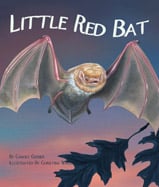Alignment to Standards for MS

| Grade | Number | Standard |
|---|---|---|
| 1 | 1)3.a. | Classify animals and plants by observable features (e.g., size, appearance, color, motion, habitat). |
| 1 | 1)3.d. | Chart and compare the growth and changes of animals from birth to adulthood. |
| 1 | 1)3.g. | Distinguish characteristics of each season and describe how each season merges into the next. |
| 2 | 2)3.d. | Compare the life cycles of plants and animals. |
| 2 | 2)3.e.2 | Investigate and explain the interdependence of plants and animals: Predator-prey relationships |
| 3 | 3)3.a. | diverse life forms (including vertebrates and invertebrates) that live in different environments (e.g., deserts, tundras, forests, grasslands, taigas, wetlands) and the structures that serve different functions in their survival (e.g. |
| 3 | 3)3.c. | relationships between the basic needs of different organisms and discern how adaptations enable an organism to survive in a particular environment. |
| 4 | 4)3.a.1 | Observable traits due to inherited or environmental adaptations |
| 4 | 4)3.a.2 | Variations in environment (over time and from place to place) |
| 4 | 4)3.c. | Compare characteristics of organisms, including growth and development, reproduction, acquisition and use of energy, and response to the environment. |
| 4 | 4)3.c.1 | Life cycles of various animals to include complete and incomplete metamorphosis |
| 4 | 4)3.c.2 | Plant or animal structures that serve different functions in growth, adaptation, and survival |
| 5 | 5)3.a. | diversity of organisms due to adaptations to show how organisms have evolved as a result of environmental changes. |
| 5 | 5)3.a.2 | Adaptations that increase an organismês chances to survive and reproduce in a particular habitat (e.g., cacti needles/leaves, fur/scales) |
| 5 | 5)4.c.1 | Weather changes from day to day and over the seasons |
| K | K)3.a | Group animals and plants by their physical features (e.g., size, appearance, color). |